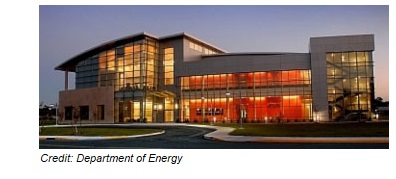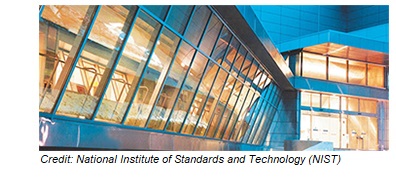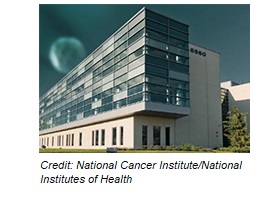NNI Shared Infrastructure
Nanotechnology R&D is facilitated by a network of shared infrastructure programs that are funded by several federal agencies and make research capabilities available to the broader community of researchers from academia, government, and industry. These programs – supported through the NNI and beyond – provide cutting-edge tools and world-class expertise, reducing the need to pay for and maintain the diversity of capabilities needed to perform multidisciplinary work on the nanoscale. The resources described on this page are those central to the NNI and are generally available to the broader research community, although access rules, costs, and provisions are determined by individual facilities and their funding agencies.
Many other NNI projects and programs welcome new users and collaborators. For assistance, interested parties should contact researchers directly or the National Nanotechnology Coordination Office . Below is an overview of what the participating agencies offer at their respective user facilities.
Department of Energy (DOE)
 The U.S. Department of Energy (DOE) operates five Nanoscale Science Research Centers (NSRCs), which are open to the research community on a peer-reviewed basis and free for non-proprietary work. Each NSRC is located at a DOE National Laboratory, providing users with access to other facilities and opportunities for collaboration. Prospective users should submit a proposal to the center of their choice:
The U.S. Department of Energy (DOE) operates five Nanoscale Science Research Centers (NSRCs), which are open to the research community on a peer-reviewed basis and free for non-proprietary work. Each NSRC is located at a DOE National Laboratory, providing users with access to other facilities and opportunities for collaboration. Prospective users should submit a proposal to the center of their choice:
- Center for Nanoscale Materials (CNM), Argonne National Laboratory, Lemont, IL
- Center for Functional Nanomaterials (CFN), Brookhaven National Laboratory, Upton, NY
- Molecular Foundry, Lawrence Berkeley National Laboratory, Berkeley, CA
- Center for Nanophase Materials Sciences (CNMS), Oak Ridge National Laboratory, Oak Ridge, TN
- Center for Integrated Nanotechnologies (CINT), Sandia National Laboratories and Los Alamos National Laboratory, Albuquerque/Los Alamos, NM
National Institute of Standards and Technology (NIST)
 The National Institute of Standards and Technology operates the Center for Nanoscale Science and Technology (CNST), the Department of Commerce’s nanotechnology user facility. The CNST supports the U.S. nanotechnology enterprise from discovery to production by providing industry, academia, NIST, and other government agencies with access to world-class nanoscale measurement and fabrication methods and technology. The CNST's shared-use NanoFab gives researchers economical access to and training on a commercial state-of-the-art tool set required for cutting-edge nanotechnology development. The simple application process is designed to get user-funded projects started in a few weeks. Looking beyond the current commercial state of the art, the CNST's NanoLab offers opportunities for researchers to collaborate on creating and using the next generation of nanoscale measurement instruments and methods.
The National Institute of Standards and Technology operates the Center for Nanoscale Science and Technology (CNST), the Department of Commerce’s nanotechnology user facility. The CNST supports the U.S. nanotechnology enterprise from discovery to production by providing industry, academia, NIST, and other government agencies with access to world-class nanoscale measurement and fabrication methods and technology. The CNST's shared-use NanoFab gives researchers economical access to and training on a commercial state-of-the-art tool set required for cutting-edge nanotechnology development. The simple application process is designed to get user-funded projects started in a few weeks. Looking beyond the current commercial state of the art, the CNST's NanoLab offers opportunities for researchers to collaborate on creating and using the next generation of nanoscale measurement instruments and methods.
- Center for Nanoscale Science and Technology (CNST), Gaithersburg, MD
National Institutes of Health (NIH)
 The National Cancer Institute's Nanotechnology Characterization Laboratory (NCL) provides knowledge and services to help researchers transition nanomaterials-based cancer treatments from the laboratory to FDA-approved clinical trials. These services are open to the research community on a peer-reviewed basis. NCI, a component of the National Institutes of Health, established the Nanotechnology Characterization Laboratory to perform pre-clinical efficacy and toxicity testing of nanoparticles intended for cancer therapeutics or diagnostics.
The National Cancer Institute's Nanotechnology Characterization Laboratory (NCL) provides knowledge and services to help researchers transition nanomaterials-based cancer treatments from the laboratory to FDA-approved clinical trials. These services are open to the research community on a peer-reviewed basis. NCI, a component of the National Institutes of Health, established the Nanotechnology Characterization Laboratory to perform pre-clinical efficacy and toxicity testing of nanoparticles intended for cancer therapeutics or diagnostics.
- Nanotechnology Characterization Laboratory (NCL), Frederick, MD
National Science Foundation (NSF)
The National Science Foundation supports an expansive network of user facilities – the National Nanotechnology Coordinated Infrastructure (NNCI). To advance research in nanoscale science, engineering, and technology, NSF launched the NNCI in 2015, supporting 16 sites and a coordinating office. These 16 facilities are operated by a consortium of universities. With a geographically diverse distribution of facilities, the NNCI provides fee-based access at reduced rates to tools and expertise for students, academics, entrepreneurs, and industry professionals around the globe. Research at these facilities is multidisciplinary, with application in materials science, semiconductors, electronics, biomedicine, energy, environmental sciences, and more.
- Center for Nanoscale Systems (CNS), Harvard University, Cambridge, MA
- Cornell Nanoscale Science and Technology Facility (CNF), Cornell University, Ithaca, NY
- Kentucky Multi-Scale Manufacturing and Nano Integration Node (KY Multiscale), University of Louisville, Louisville, KY
- Mid-Atlantic Nanotechnology Hub (MANTH), University of Pennsylvania, Philadelphia, PA
- Midwest Nanotechnology Infrastructure Corridor (MiNIC), University of Minnesota, Minneapolis, MN
- Montana Nanotechnology Facility (MONT), Montana State University, Bozeman, MT
- nano@stanford, Stanford University, Stanford, CA
- Nanotechnology Collaborative Infrastructure Southwest (NCI-SW), Arizona State University, Tempe, AZ
- Nebraska Nanoscale Facility (NNF), University of Nebraska-Lincoln, Lincoln, NE
- Northwest Nanotechnology Infrastructure (NNI), University of Washington, Seattle, WA
- Research Triangle Nanotechnology Network (RTNN), North Carolina State University, Raleigh, NC
- San Diego Nanotechnology Infrastructure (SDNI), UC San Diego, San Diego, CA
- Soft and Hybrid Nanotechnology Experimental (SHyNE) Resource, Northwestern University, Evanston, IL
- Southeastern Nanotechnology Infrastructure Corridor (SENIC), Georgia Tech, Atlanta, GA
- Texas Nanofabrication Facility (TNF), University of Texas - Austin, Austin, TX
- Virginia Tech National Center for Earth and Environmental Nanotechnology Infrastructure (NanoEarth), Virginia Tech, Blacksburg, VA


